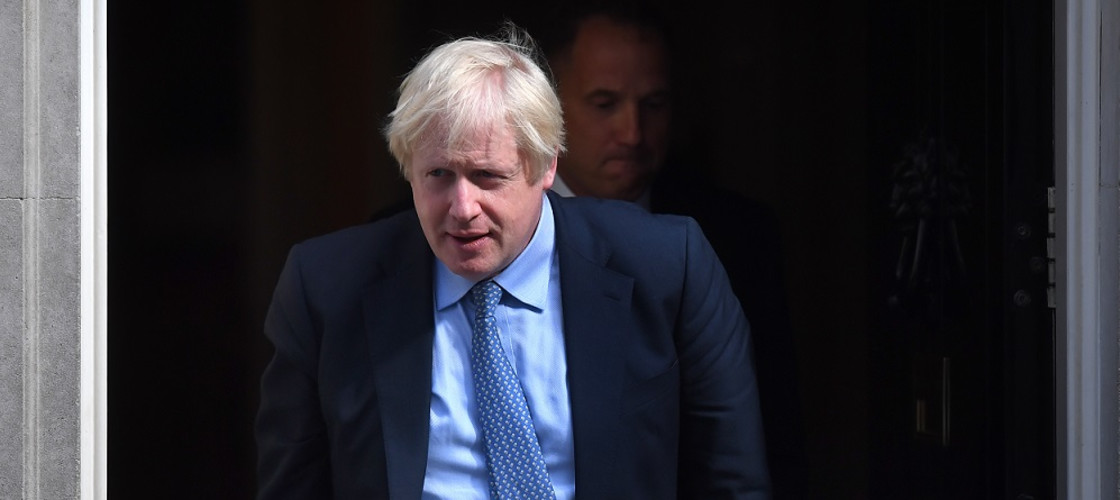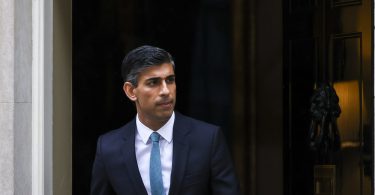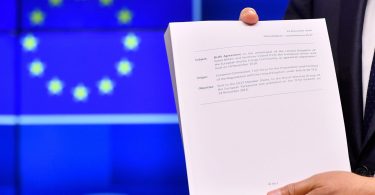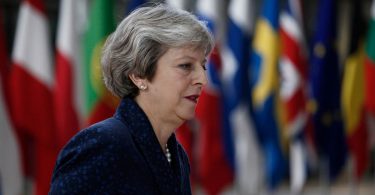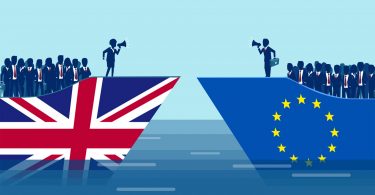Martin Howe QC, Chairman of Lawyers for Britain, explains why Boris Johnson’s commitment that there will be no extension to the transition period beyond December 2020 is a game-changer towards the UK achieving the return of control over its laws, borders, money and international trade policy:
Introduction
Boris Johnson’s on-the-record announcement that he will negotiate a SuperCanada-style Free Trade Agreement (FTA) – and that there will be no extension to the transition period after the end of 2020 – should give reassurance to all Brexit supporters that he is on a path to deliver a Brexit which gives us back control of our laws, borders, money and international trade – if he gets a majority in Parliament.
An extension to the transition period cannot be forced on the UK against its will. On the Brexit Central website on 14 November 2019, Ben Habib MEP called attention to the undesirable jurisdiction of the European Court of Justice in the Withdrawal Agreement, which lingers on from the Theresa May draft. He is right to be concerned about this, but his particular fear that the ECJ might impose an extension on the UK against its will is misplaced – the ECJ would have no power to do this. Although the Withdrawal Agreement (WA) requires both parties to use “best endeavours” to negotiate an agreement in line with the Political Declaration, any judicial enforcement of this clause against the UK is very unlikely. It is not a breach of such a “best endeavours to agree” clause for a party robustly to defend its own interests in negotiations, even if doing so results in no agreement being reached.
What could result in the UK being mired indefinitely in negotiations running into an extended transition period is if Boris Johnson fails to get a solid majority in Parliament after this election, and a Remain-dominated Parliament continues to undermine the UK’s national interest in our negotiations with the EU.
Last weekend, Boris Johnson gave an on-the-record commitment that he will negotiate a “SuperCanada+” style Free Trade Agreement with the EU, and that the transition period under the Withdrawal Agreement will not be extended beyond 31st December 2020.
This commitment is welcome and is vital, in order to rule out the risk that the UK would find itself wallowing around indefinitely trapped in a transition period subject to EU laws and rules while negotiations with the EU drag on and on.
How the transition period will work
Under the Withdrawal Agreement, assuming that it is ratified before the UK exits from the EU on the now-extended date of 31st January 2020, there will then be a so-called “transition” or “implementation” period which will run until 31st December 2020. During this period, the UK will as a matter of substance effectively remain an EU Member State for almost all purposes, and be subject to EU laws and to Commission and ECJ jurisdiction, but with the important difference that the UK will no longer have a vote or veto in the Council of Ministers or European Parliament, nor any representation on the Commission, the ECJ or other EU institutions.
Neither the word “transition” nor “implementation” is apt to describe this period of time. It was originally envisaged that by this stage we would have reached an agreement with the EU about our future relationship covering all points of substance, and the time would then be needed just to ink in the details and get administrative procedures up and running.
As it is, our future relationship with the EU is set out in a sketchy Political Declaration. Thanks to Boris Johnson’s changes, this now foreshadows an FTA, but it leaves many important points yet to be decided in negotiation. So the “transition” period will actually be an “extended negotiation” period during which the terms of our future relationship with the EU will be thrashed out.
The EU’s delaying tactics
The EU’s likely tactics during these negotiations have been made clear in recent comments by Michel Barnier. He claimed that “We will have to renegotiate for one year, two years, three years, maybe more in some areas…” The EU will try to “run down the clock” against the UK, trying to force the UK up against the 31st December 2020 deadline and thereby extract the maximum concessions for the EU.
This is a repetition of the tactics used by Barnier against the UK during the first round of negotiations against Theresa May – of running down the clock and forcing the UK up against the supposed “cliff edge” of a no-deal Brexit. These tactics proved spectacularly successful for the EU, although it must be said against a spectacularly incompetent and weak UK negotiating team, hampered in addition by being undermined by a Remainer-dominated Parliament.
What the EU needs from the UK
Contrary to widespread perceptions, the UK’s bargaining position against the EU is in fact extremely strong. Why did EU leaders three times agree to extend Article 50, despite being totally messed around repeatedly by internal UK politics? It had nothing to do with the kindness of their hearts or a desire to be politically responsible: it was entirely down to the self interest of the EU27 member states.
The EU27 run a massive trade surplus in goods with the UK. In 2017, the latest year for which ONS “Pink Book” statistics are available, we exported £164bn of goods to the EU27 and imported £259bn, giving a huge surplus of £95bn to the EU27. In addition to being in surplus, the EU27’s goods exports to the UK are heavily concentrated in high tariff sectors such as agriculture, clothing and motor vehicles, by contrast with the UK’s exports in the other direction.
These goods flowing in both directions do not bear tariffs at present, because they take place inside the EU’s customs union. However, because the UK as an EU member is obliged to impose EU-level tariffs on goods coming from the rest of the world, this forces UK consumers to buy goods from the EU27 at substantially above world market prices. Therefore the EU27 benefit not only from having a massive £95bn per year trade surplus, but also from being able to sell much of their £259bn goods exports to the UK at well above world prices.
The European Commission is very experienced in trade negotiations and understands all this. This contrasts with the woeful ignorance of these basic facts on this side of the Channel. A “no deal” Brexit would have led immediately to the EU27’s goods exporters facing tariffs into the UK market and having to compete with third country imports on an equal basis – or even at a serious disadvantage as and when the UK concludes preferential zero-tariff trade agreements with third countries. This would have led to particular difficulties in some politically sensitive sectors and industries within the EU27. It is this pressure, not the kindness of EU leaders’ hearts, which led to Boris Johnson being able to achieve the changes he did by threatening a no-deal exit.
But this makes clear what the EU’s negotiating objectives will be next year:
- To maintain tariff-free access for EU goods exports into the UK market, while giving as little away as possible on services (where the UK has a surplus)
- To push the UK into an agreement which imposes the highest possible barriers against goods imports into the UK from the rest of the world
- To try to keep the UK in “transition” status, during which the UK is obliged to impose EU-level tariffs and EU single market regulatory restrictions against imports from the rest of the world, as long as possible
Why Boris Johnson’s announcement of “no extension to the transition” is vital
An extension to the transition period beyond 31st December 2020 could not be imposed on the UK by the EU without the UK’s consent. There is provision for such a possible extension in the Withdrawal Agreement which was negotiated by Theresa May, and that clause is still there. However, according to the Implementation Bill introduced to Parliament last month, no such extension can be agreed without an affirmative resolution of the House of Commons proposed by a Minister. So if Boris Johnson is Prime Minister, it will not happen.
In his Brexit Central article Ben Habib MEP raised a concern that an extension to the transition period could be imposed on the UK by the ECJ against our consent, if it were to rule that the UK had not complied with its obligation to use best endeavours to negotiate an agreement with the EU in line with the Political Declaration. I have been at the forefront of those consistently arguing against the dangers of the wide-ranging ECJ jurisdiction incorporated in the Withdrawal Agreement, which unfortunately was not removed during Boris Johnson’s last minute negotiations with the EU.
But that particular fear is misplaced. The transition period can only be extended through a sovereign decision by the United Kingdom to agree to the extension and its terms, and nothing in the WA gives the ECJ any power to over-ride the UK’s refusal to participate in such an extension, even if (as Ben Habib suggests) the ECJ were to find that the UK had failed to use its “best endeavours” to reach an agreement. And even such a finding of failure of “best endeavours” is highly unlikely, because it is very difficult to pin a failure to reach an agreement in negotiations on one party or the other. It is simply not a breach of such a “best endeavours” clause for a party robustly to defend its own interests in negotiations, even if doing so results in no agreement being reached.
Negotiating benefits of ruling out a transition extension
It is important that any possibility of there being an extension to the transition period should be ruled out unequivocally and without reservation, for a series of reasons.
First, it is vital to trade negotiations with third countries such as the USA or Australia that any such possible extension is ruled out. The UK is legally entitled during the transition period to negotiate and conclude trade agreements with third countries which come into force at the end of the transition. (In fact, we have always been entitled to negotiate and conclude trade agreements during the Article 50 notice period which come into force after the end of that period, but the government legal machine has incomprehensibly and spinelessly failed to assert this right.) But these non-EU countries would not waste time negotiating with us if they feared that any deal they did with us would have to be postponed because we had extended our EU transition period, which keeps us for longer inside the EU external tariff wall.
Our exports to the rest of the world are already greater than our exports to the EU. Over the past 15 years, they have consistently been rising at a much faster rate. It is absurd to put an obsession with doing a deal with the EU ahead of our bigger and faster growing trade with the rest of the world. Our EU-facing policy and negotiations with the EU should be subordinate to our global trade policy, not the other way around.
Secondly, it is vital to signal to the EU that there is no prospect whatever of any extension to the transition period, in order to force them to negotiate seriously and in a timely way. If the EU are allowed to think that they can lig around spending 3 years negotiating with us, they will take that time. If they allowed five years, they will take that time and then only do a deal at the last minute.
Recent events have shown that the EU is quite capable of doing a deal quickly if the time pressure is there. The period ending in December 2020 is perfectly adequate to conclude an FTA, given the starting point that we are currently in regulatory alignment with the EU on every sector of goods and services.
Thirdly, the EU needs to be placed under negotiating pressure to ensure that in return for zero tariff access for their goods to the UK market, they agree to continued UK services access to the EU market and also drop their attempts to impose damaging terms on the UK, such as “level playing field” clauses which go beyond clauses which are standard in international Free Trade Agreements.
The best way of achieving that it to demonstrate that on 1st January 2021, the UK will open its markets to competing trade partners, and if the EU wants to maintain its zero-tariff preferential access to the UK market, then it will need to agree to reasonable and balanced terms and give on up its attempts to turn the UK into an offshore EU colony.
Why a Conservative majority is needed
So that is why Boris Johnson’s commitment not to extend the transition period is vital to getting a proper Brexit done. It will allow a deal to be reached with the EU which will respect the objectives of Brexit.
But what could prevent this happening would be if Boris Johnson does not get a clear parliamentary majority in this election. Imagine a Parliament in which yet again that Parliament undermines the Government’s negotiating position by threatening or even imposing a transition extension. That would be a disaster, which is why all Brexit supporters now need to pull together behind getting a clear Conservative majority.

